SOROTI, Uganda-Soldiers from the Uganda People's Defense Forces (UPDF) and the U.S. Georgia Army National Guard have been training and living together in the bush north of Soroti as part of Atlas Drop 11.
Infantrymen, cavalry scouts and pathfinders from 3rd Squadron, 108th Cavalry Regiment, 560th Battlefield Surveillance Brigade, and soldiers from UPDF's 27th Infantry Battalion have been training alongside each other on patrolling and clearing aerial-resupply drop zones in three locations in the Olilim and Kapelebyong areas.
"We've been out here since yesterday, and by here I mean at Drop Zone Red in Kapelebyong, working with the 27th Infantry, UPDF, training with them on pathfinder operations and some of our troop tactics and procedures," said 1st Lt. Steven Russell of Dahlonega, Ga., a member of Troop A, 3-108th. Russell serves as the pathfinder team leader and lead instructor for the UPDF training team at DZ Red.
"In addition to that, we've been working hand-in-hand with the UPDF. They have been showing us how to conduct field operations and how they operate in tactical and combat environments," he said.
DZ Red (Kapelebyong), along with DZ White and Blue (Olilim), will be used during three days of live aerial-resupply practice drops that will conclude AD 11.
The training conducted during this year's iteration of the annual exercise, sponsored by U.S. Army Africa, will increase the capability of both UPDF and U.S. forces to resupply soldiers operating in remote areas.
UPDF Lt. Stephen Omuya, an instructor from the Olilim Training School, said the training conducted as part of AD 11 will be helpful in whatever environment soldiers may find themselves working.
"This is very important for us to have such technical and tactical training exercises," he said.
While training and living together, the U.S. and Ugandan soldiers have come to know each other better, both as professional soldiers and as people, said Omuya.
The UPDF Soldiers have been eager to learn and many of them have been filling up notebooks with information presented during classes, even remaining after a training class is over to get any notes they may have missed, said Staff Sgt. Jeremiah Stafford, a native of Charleston, S.C., who serves as a pathfinder with 3-108th.
"The UPDF Soldiers are all very eager to learn," he said.
The main challenge the Ugandan and U.S. Soldiers training at DZ Red have noted has to do with communicating the technical nature of aerial delivery operations.
"Our biggest challenge out here has been the language barrier, absolutely," Stafford said.
To help overcome language differences, one of the UPDF noncommissioned officers stepped forward to translate the U.S. instructors' English into Swahili, and a few of the U.S. Soldiers figured out their own means to communicate.
"The guys came up with some training aids to help with the language barrier," said Staff Sgt. Gabriel Brooks of Douglasville, Ga., who serves as a section leader with Troop A, 3-108th.
During some of the breaks in the busy training schedule a few of the Georgia Soldiers created a miniature C-130 Hercules aircraft and a Blackhawk helicopter with rotors that actually turn out of water bottles, duct tape and sticks. They used the models to provide the UPDF Soldiers with a visual means of grasping the technical information they were presenting.
Working together to make the training as beneficial and pertinent as possible, the UPDF and U.S. forces have not only become more proficient at establishing drop zones, but also at seeing challenges as opportunities that, if overcome, can lead to greater understanding and perhaps even friendship.
"We are getting an immense sense of fulfillment and enjoyment from working with a very professional force, getting to see a beautiful part of our world and getting a tremendous amount of multicultural and multinational experience and working with one of our strong allies," Russell said.
During a recent radio broadcast at an FM station in Soroti by the Ugandan and U.S. leadership of AD 11, Lt. Col. Jeffrey Dickerson, commander of 3-108th, and deputy director of the exercise, said that the enjoyment expressed by Russell will be the most valuable of all outcomes for everyone involved with AD 11.
"Years from now the most valuable thing that will come out of this for both the soldiers of the UPDF and the Soldiers of the U.S. Army ... is the memory of the interactions that we had, when we were able to learn about each other's cultures and gain a much greater appreciation for each other," he said.
Related Links:
Follow U.S. Army Africa on Twitter
Join the U.S. Army Africa conversation on Facebook
View U.S. Army Africa photos on Flickr
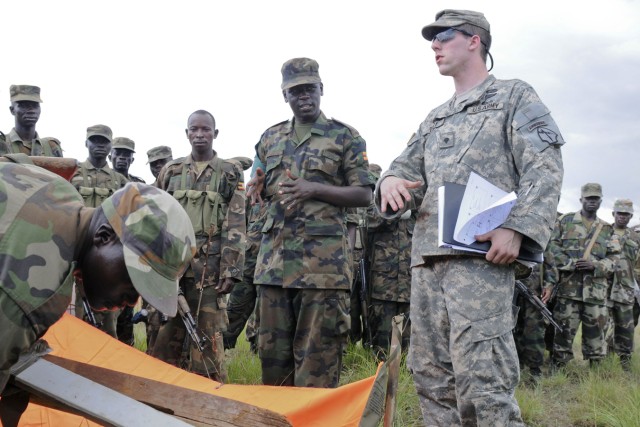
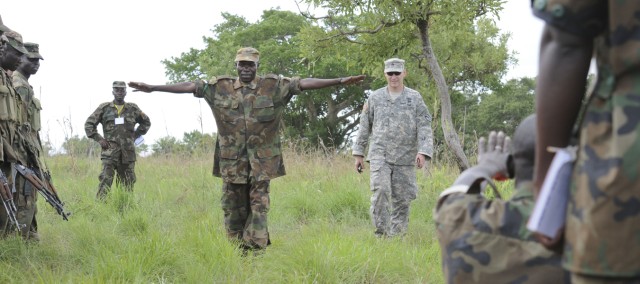
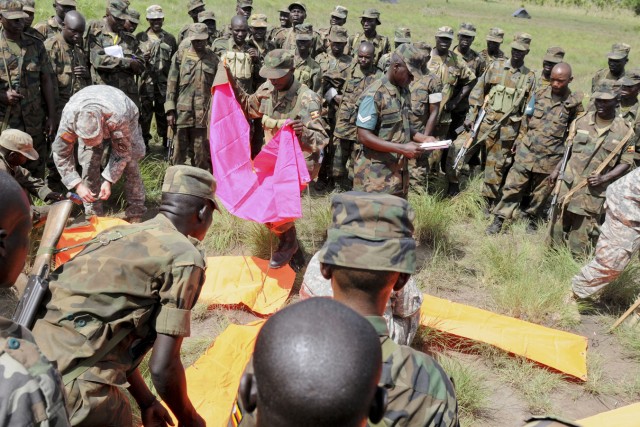
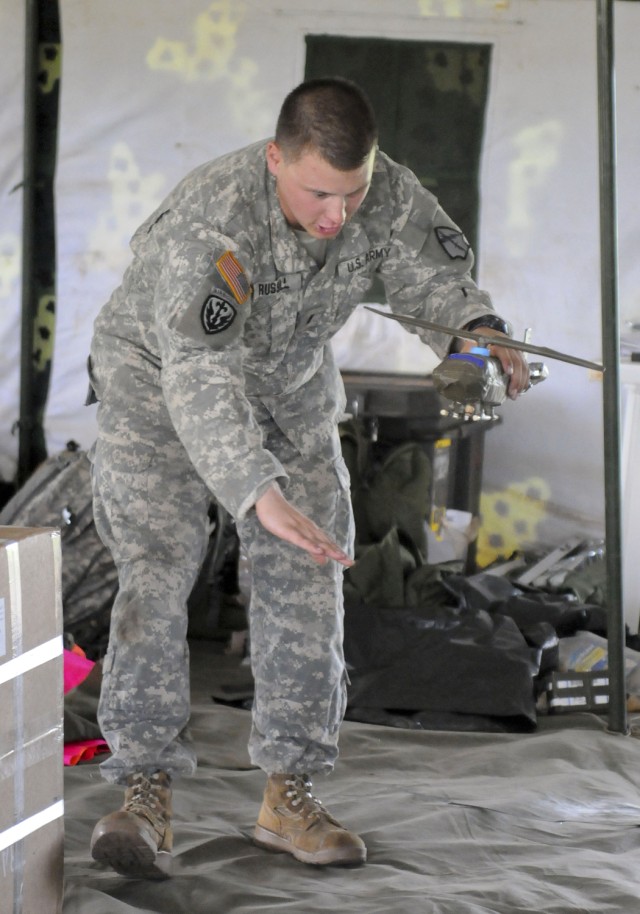
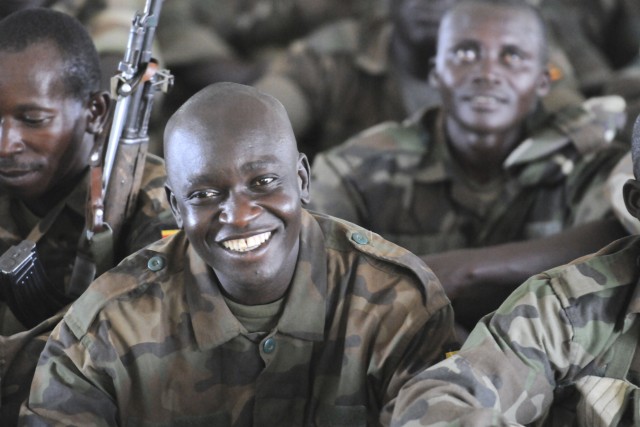





Social Sharing